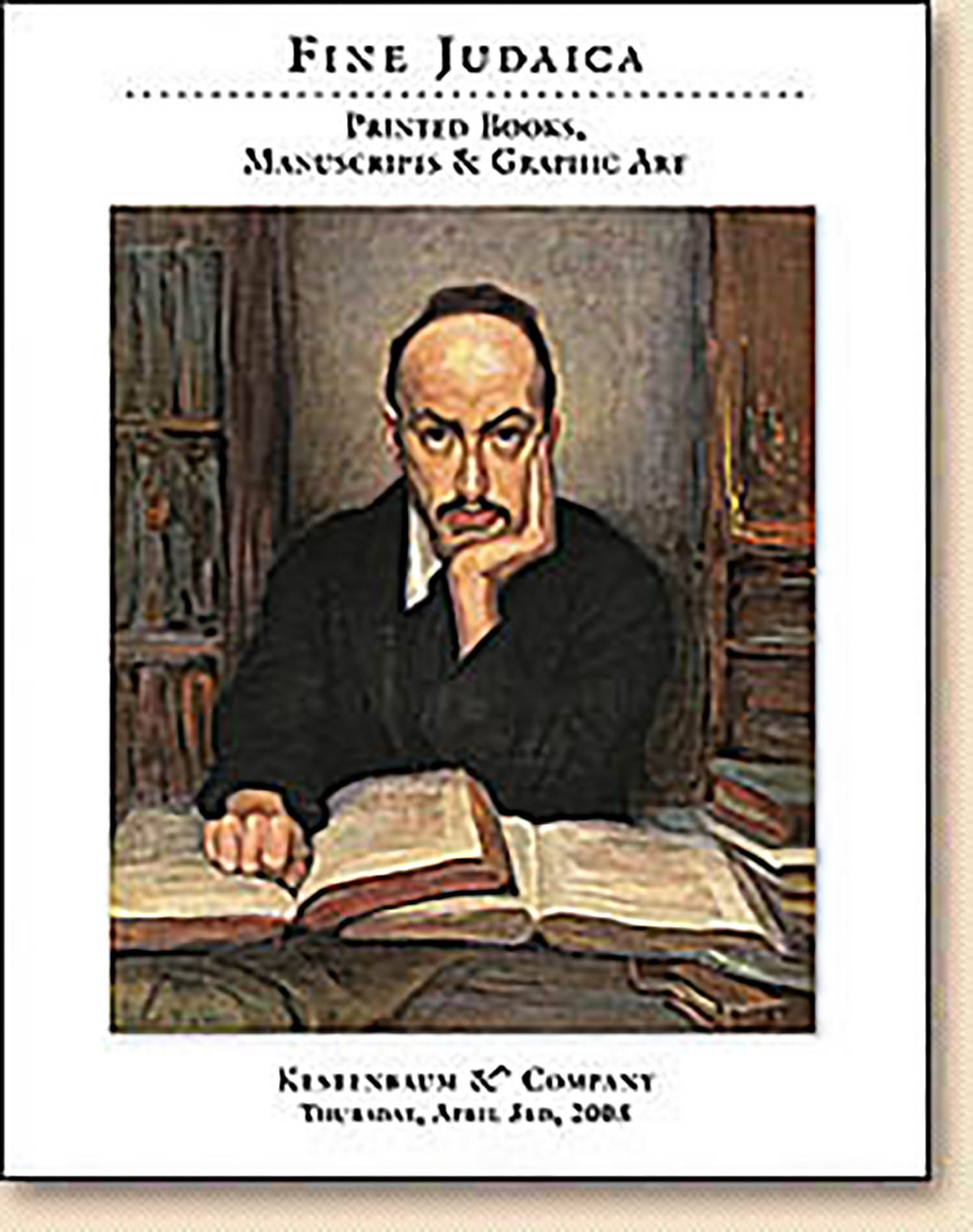Kohn, Noel A. Cantor. Calendar de buzunar Roman-Evreesc pe anul 1943-1944 / Der Yiddish-Rumenisher kalendar li-shenath 5704 [Jewish-Rumanian Calendar for the Year 1943-1944]

AUCTION 39 |
Thursday, April 03rd,
2008 at 1:00
Fine Judaica: Printed Books, Manuscripts, Autograph Letters & Graphic Art
Lot 168
(HOLOCAUST)
Kohn, Noel A. Cantor. Calendar de buzunar Roman-Evreesc pe anul 1943-1944 / Der Yiddish-Rumenisher kalendar li-shenath 5704 [Jewish-Rumanian Calendar for the Year 1943-1944]
(Bucharest): Libro 1943
Est: $500 - $700
One of the great ironies of World War II was that for the most part, Jews fared better in the Axis nations who were Hitler's partners - Italy, Rumania, Bulgaria - than in Allied countries occupied by the Nazis. It was not until August of 1944 that Rumania broke with Germany and entered the war on the side of the Allies. To be sure, Jews suffered immensely under the Fascist Iron Guard, but Jewish communal life continued in the capital of Bucharest during the most trying times.
This highly eclectic calendar, which bears the approval of the Military Censor on its title ("Aprobat de Cenzura Militara"), is a miscrocosm of Jewish life in cosmopolitan Bucharest during World War II. In parallel columns are listed Jewish religious observances, alongside feasts and fast days of the Rumanian Orthodox Curch. On the final leaf, the roster of Yahrzeiten of Rabbis and Famous Men, notes the anniversaries of the deaths of: R. Chaim of Tchernowitz, R. Chaim of Kosov, R. Israel of Vizhnitz, R. Abraham Matithyahu of Stefanest - as well as prominent Zionist leaders Nahum Sokolow, Benjamin Ze'ev Herzl and Ze'ev Jabotinsky.
On p. 2, there are advertisements for classes at the Bohusher Kloiz, Str. Otleni, 38. The Bohusher Kloiz, the synagogue and residence of the Rebbe of Bohush, R. Isaac Friedman (1903-1993), a descendant of the famed R. Israel of Ruzhin, provided safe haven to countless Jewish refugees in the Rumanian capital during World War II. (Among those who were given succor there were: the Vizhnitzer Rebbe; Dayan Weiss (author "Minchath Yitzchak"); R. Yidele of Dzhikov; and the Bobover Rebbe.) In 1951, the Bohusher Rebbe left Bucharest for Eretz Israel, settling in Tel-Aviv. See H.M. Rabinowicz, Hasidism: The Movement and Its Masters (1988), p. 371; Tzvi M. Rabinowicz, The Encyclopedia of Hasidism (1996), p.142; Y. Alfasi, Ha-Chasiduth, p. 42
